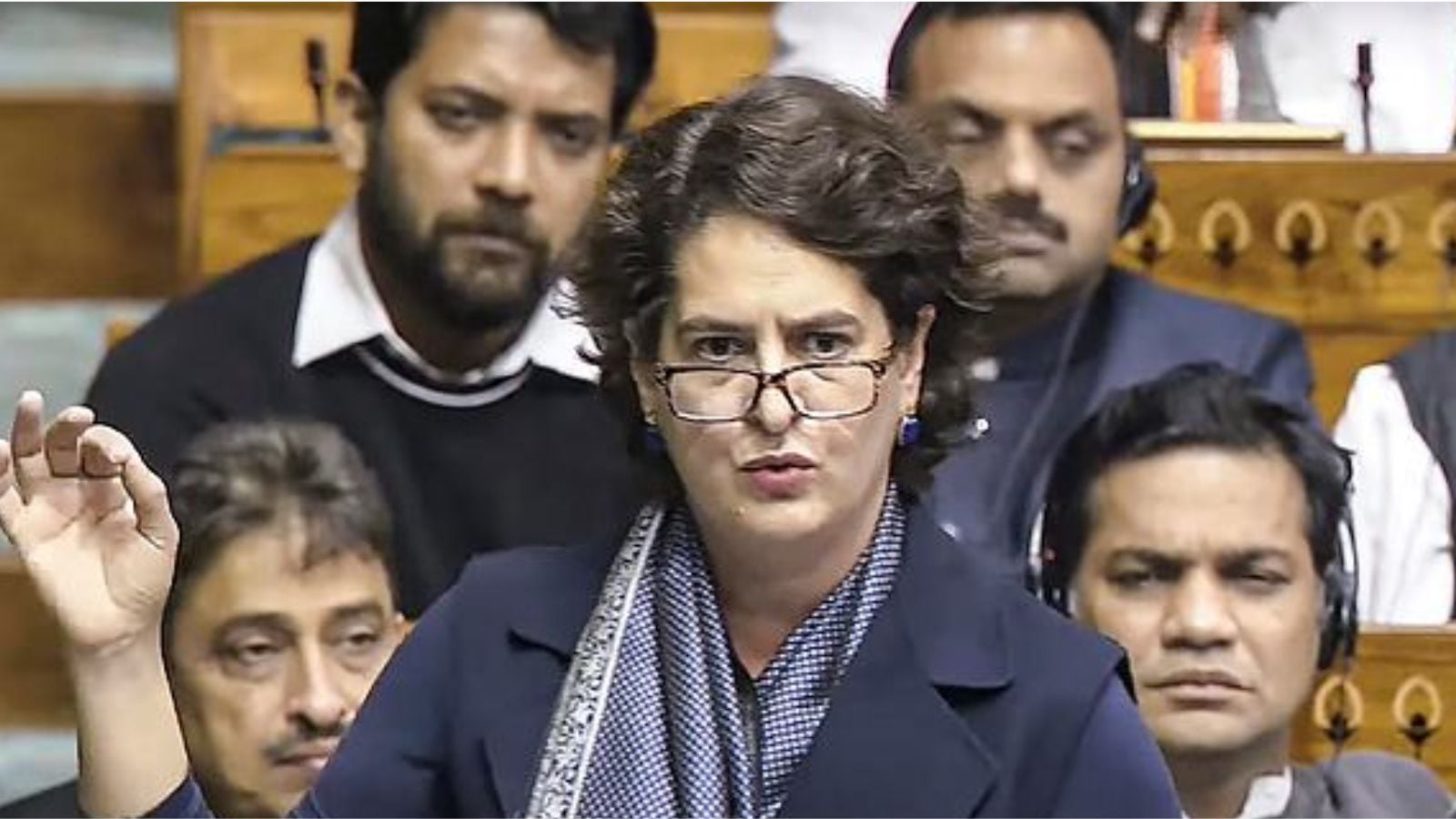 |
|
Priyanka Gandhi Vadra's maiden speech in the Lok Sabha marked a significant moment in Indian politics. Her address, delivered during a debate on the Constitution, was a scathing critique of the Narendra Modi government, accusing it of prioritizing industrialists over the needs of the common people. She forcefully argued that the current administration had strayed from the principles enshrined in the Constitution, neglecting the welfare of its citizens and fostering an environment of fear. Gandhi's speech was characterized by its directness and passionate delivery, directly addressing previous criticisms leveled against her family and party, particularly concerning the Emergency. She challenged the government to learn from past mistakes and apologize for their actions, setting a tone of assertive accountability rarely seen in parliamentary discourse.
A central theme of Priyanka Gandhi's address was the perceived suppression of dissent and the use of fear as a tool of governance. She highlighted instances where individuals, including journalists, opposition leaders, and students, faced intimidation and persecution for speaking out against the government. She specifically mentioned the alleged misuse of investigative agencies like the Enforcement Directorate (ED) and the Central Bureau of Investigation (CBI) to silence dissent, drawing parallels to the oppressive tactics employed during British colonial rule. Gandhi asserted that the ruling party's reliance on fear-mongering was a sign of weakness, contrasting it with the courage and resilience shown by ordinary citizens who, despite facing adversity, continue to fight for justice. She invoked several poignant examples of individuals' struggles against injustice, demonstrating the unwavering spirit of those who found strength in the promise of the Constitution.
Priyanka Gandhi's speech also encompassed a range of policy-related demands. She advocated for a caste census, arguing that it's crucial for understanding the socio-economic realities of various communities and designing targeted policies for their empowerment. She countered the government's previous dismissive arguments against the census, highlighting the insensitivity of such responses. Further, she called for a return to ballot paper-based elections, expressing concerns over the potential for manipulation and irregularities in electronic voting systems. Gandhi also strongly criticized the government's economic policies, alleging that they primarily benefit large industrialists at the expense of farmers and small businesses. She pointed to the farm laws as an example of such policies, detailing the detrimental effects they have had on agricultural communities across India. Her critique extended to various sectors, accusing the government of concentrating economic benefits in the hands of a select few, primarily referencing Adani Group's rapid expansion.
Throughout her speech, Priyanka Gandhi subtly but effectively invoked the legacy of her family, particularly her great-grandfather, Jawaharlal Nehru, and her grandmother, Indira Gandhi. While acknowledging past criticisms directed at Nehru's governance, she deftly defended his significant contributions to India's development and nation-building. She highlighted his role in establishing crucial public sector undertakings and institutions of higher education. Similarly, she championed Indira Gandhi's nationalization of banks, framing these actions within the larger context of advancing social and economic justice. This strategic use of her family's history served to strengthen her argument and position her within the lineage of Congress leaders committed to the ideals of the Constitution and the welfare of the Indian people. Her speech concluded with a powerful assertion of the Constitution's enduring importance as a protective shield for the rights and liberties of all citizens, underscoring her commitment to its preservation and upholding its principles.
The significance of Priyanka Gandhi Vadra's speech extends beyond its immediate impact within Parliament. Her assertive and critical address provides a strong counterpoint to the narrative often presented by the ruling party, challenging their claims of progress and development. The speech serves as a rallying cry for opposition parties, providing a framework for future debates and discussions on crucial national issues. Moreover, her poignant stories of individual struggles against injustice highlight the continuing challenges faced by marginalized communities and the crucial role of the Constitution in guaranteeing their rights. The speech demonstrates Priyanka Gandhi's emergence as a formidable political voice, showcasing her ability to articulate compelling arguments and effectively engage with the complexities of Indian politics.
